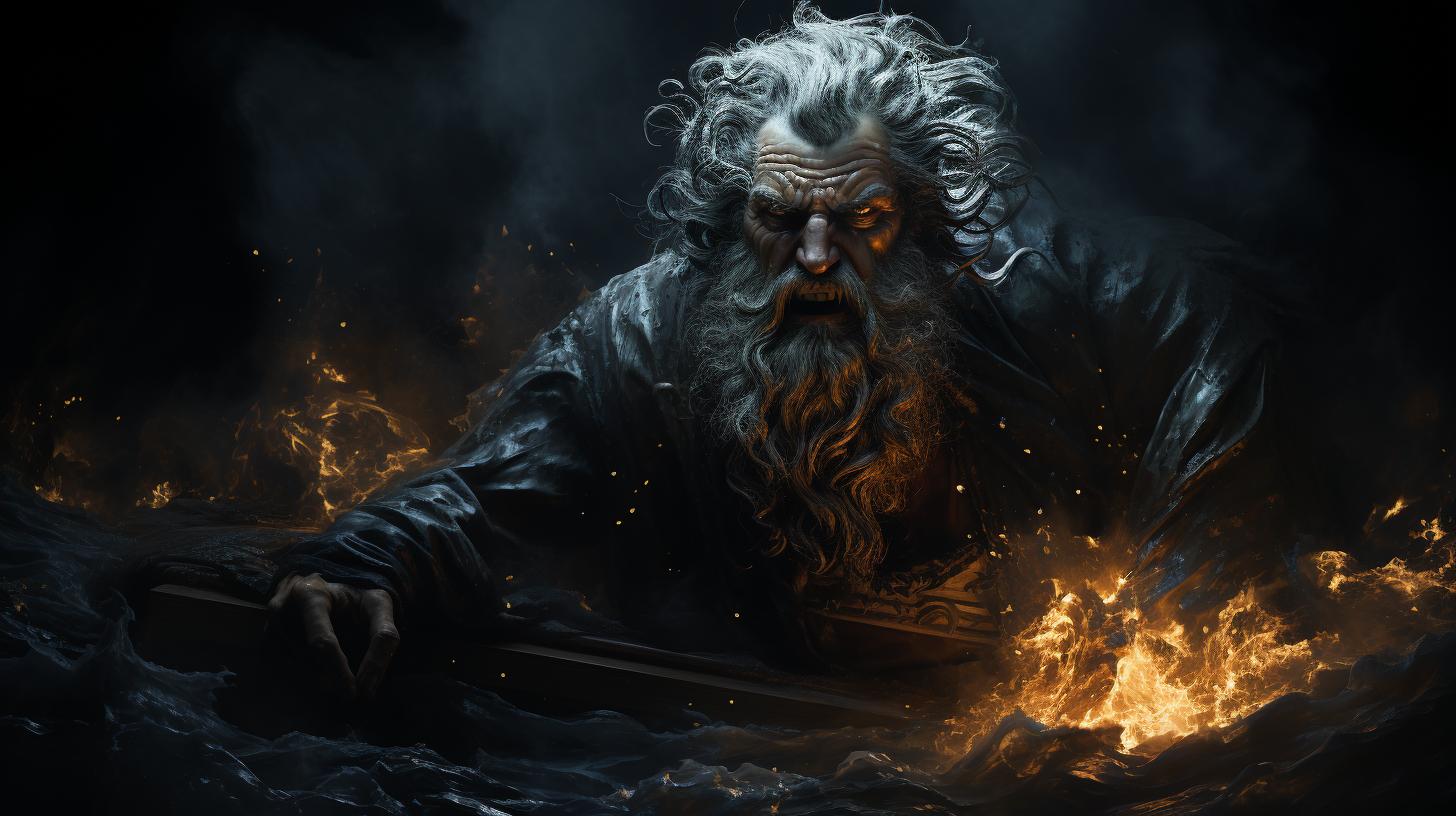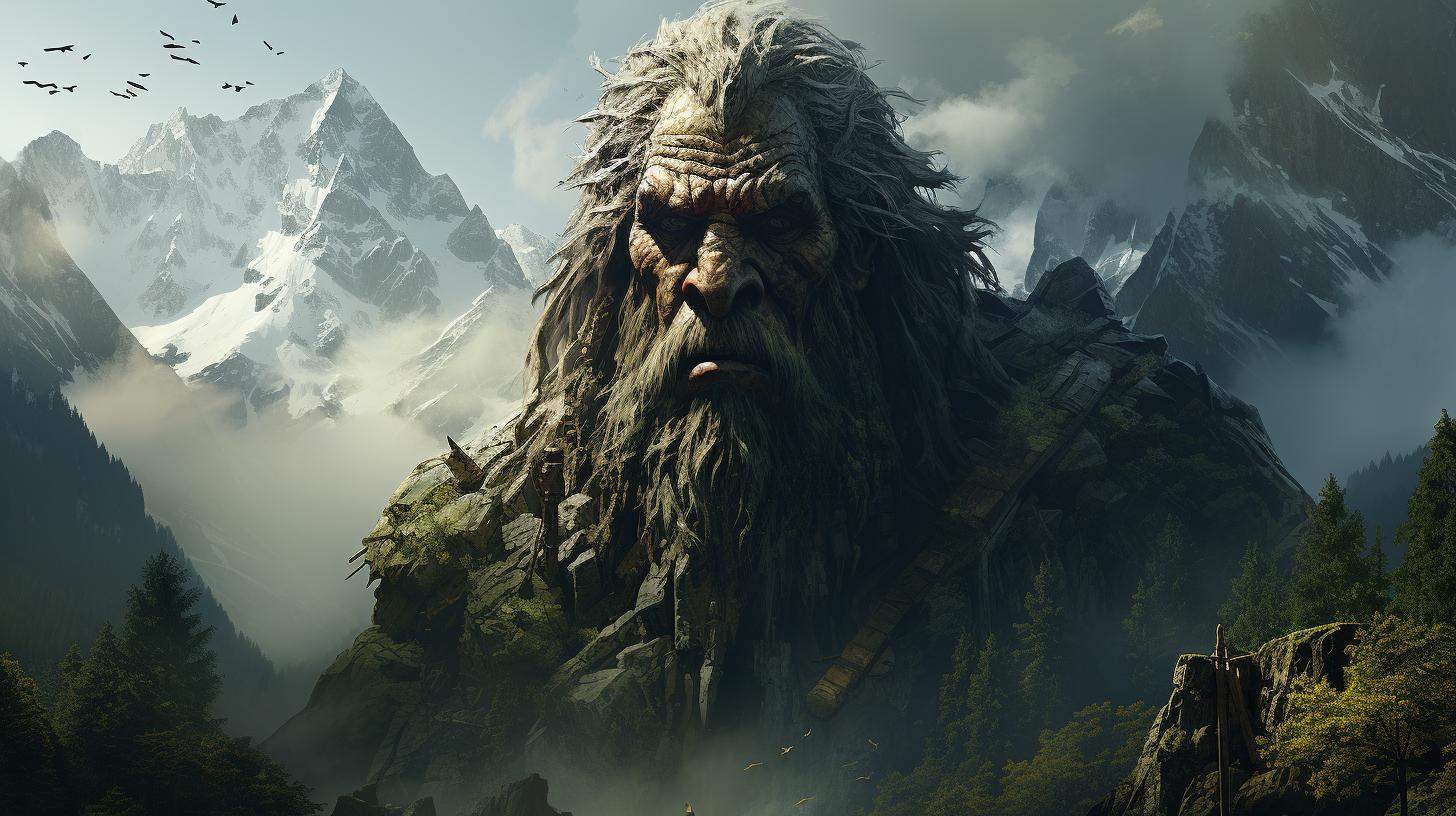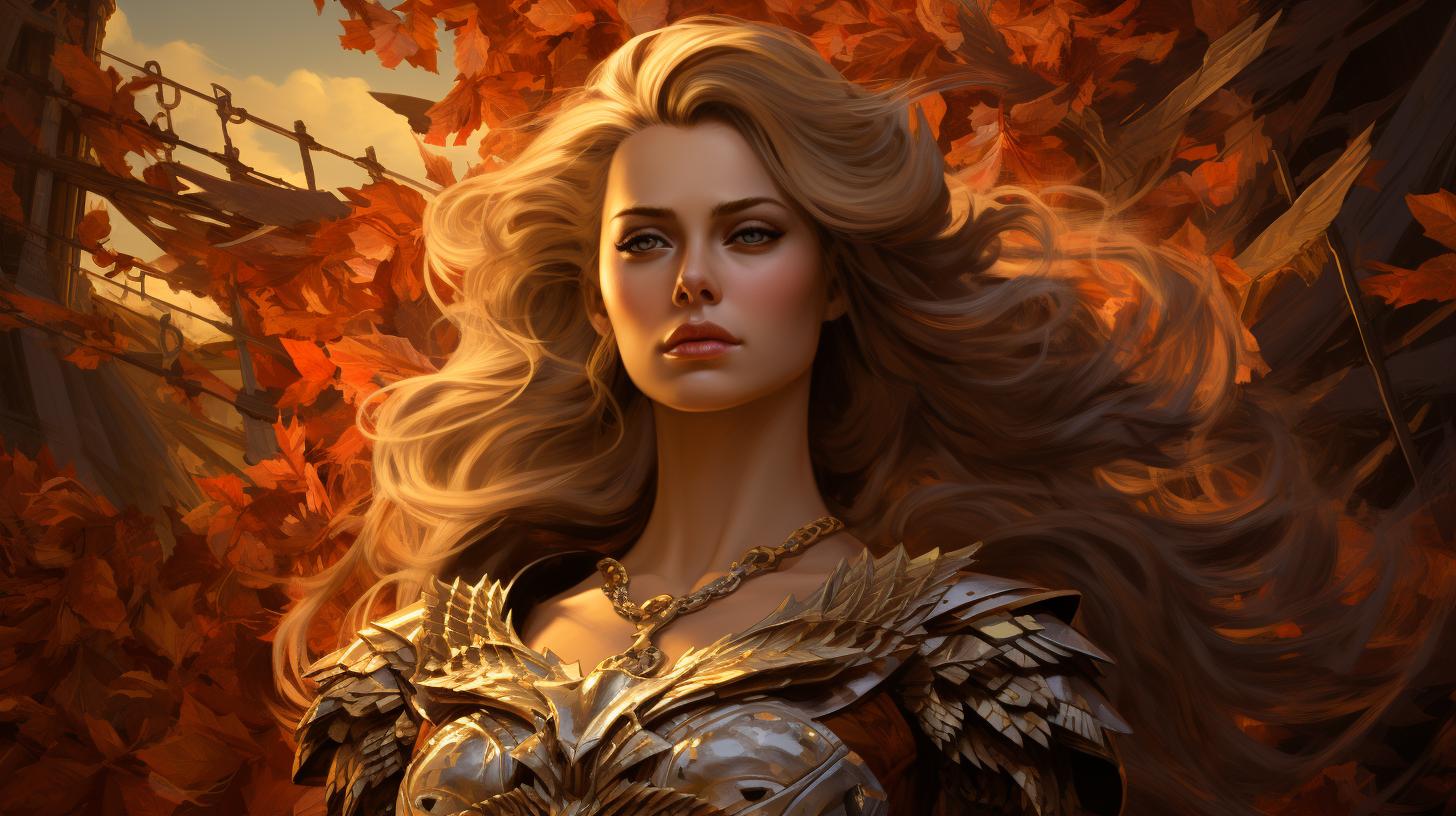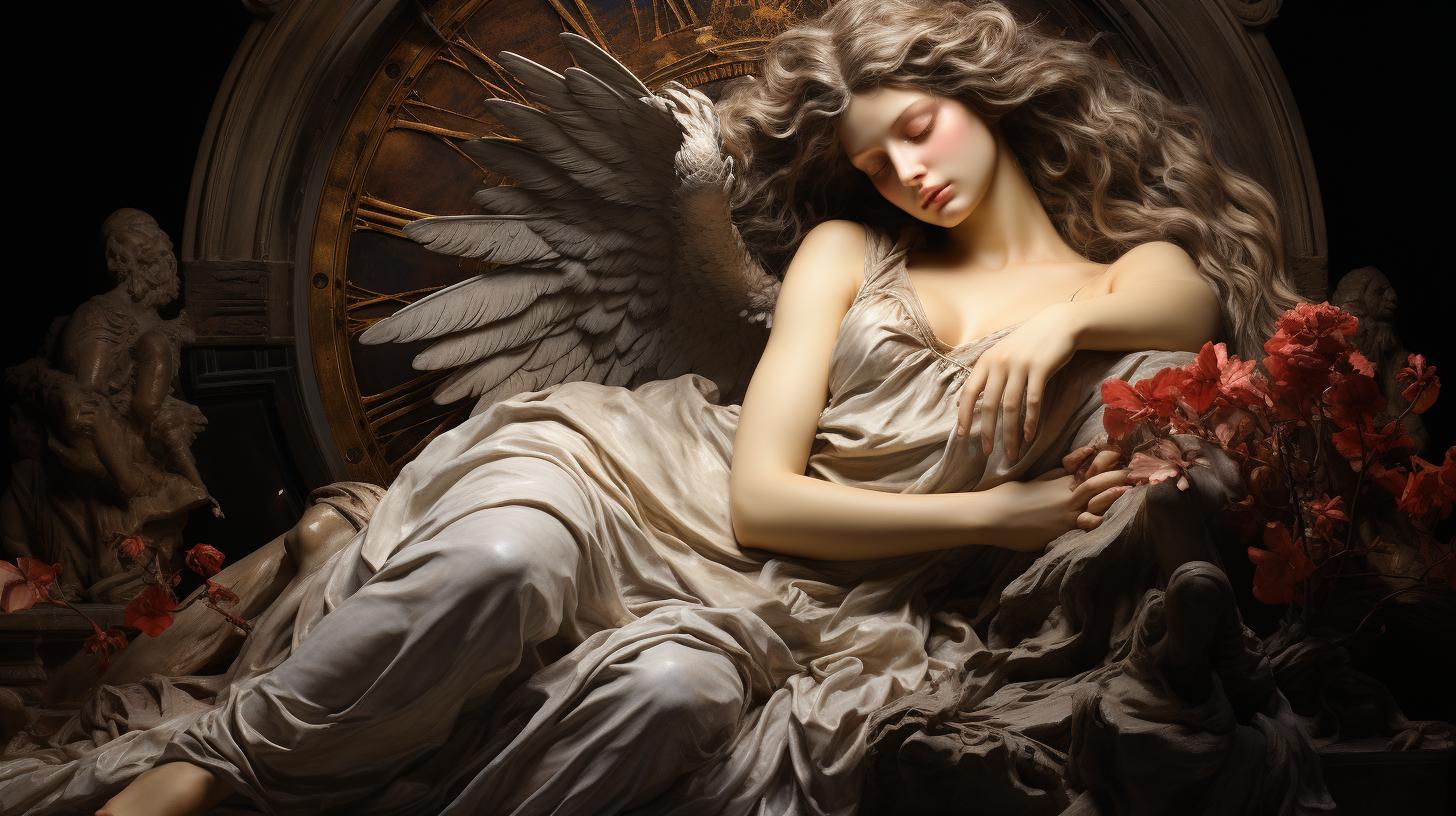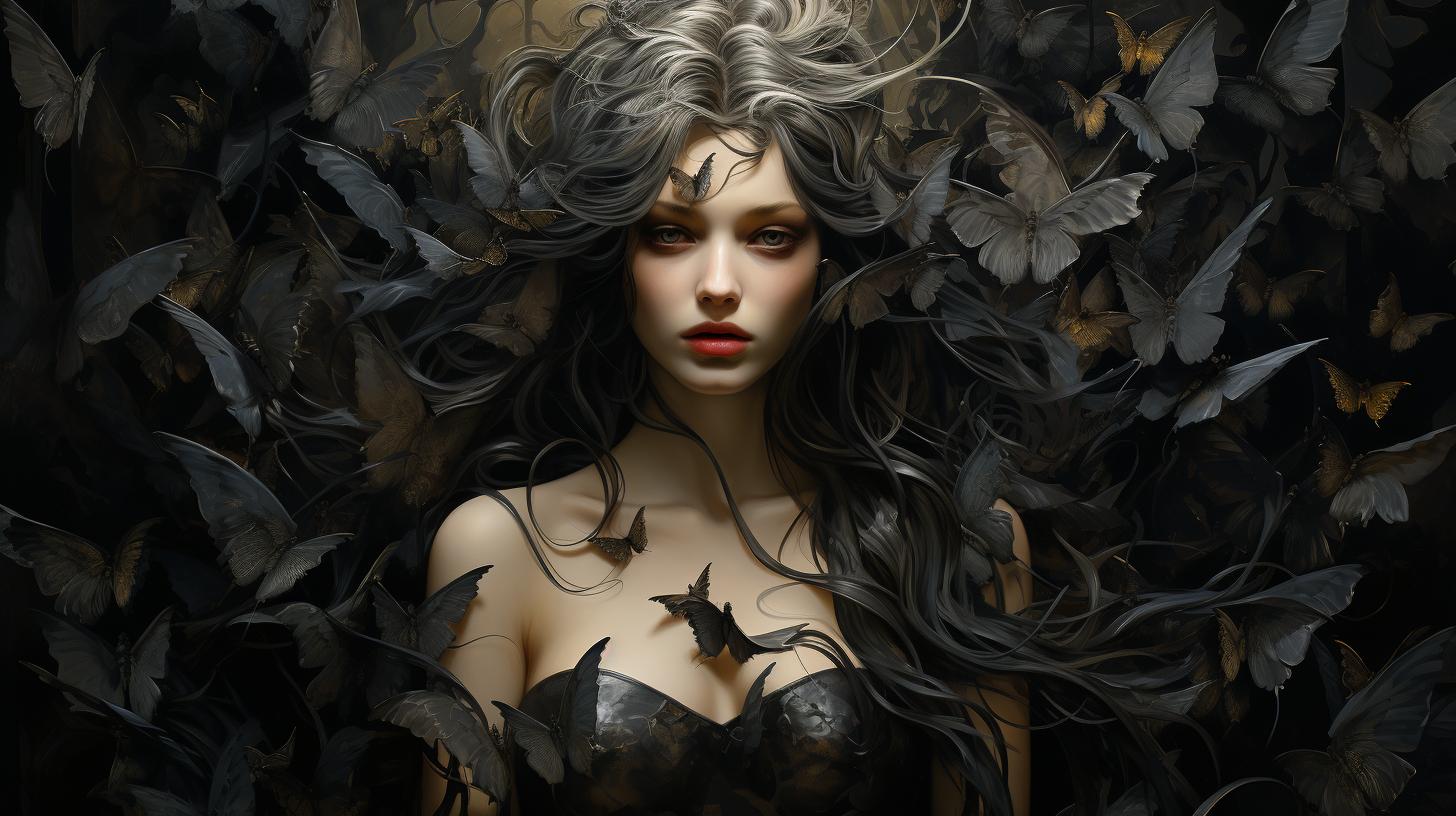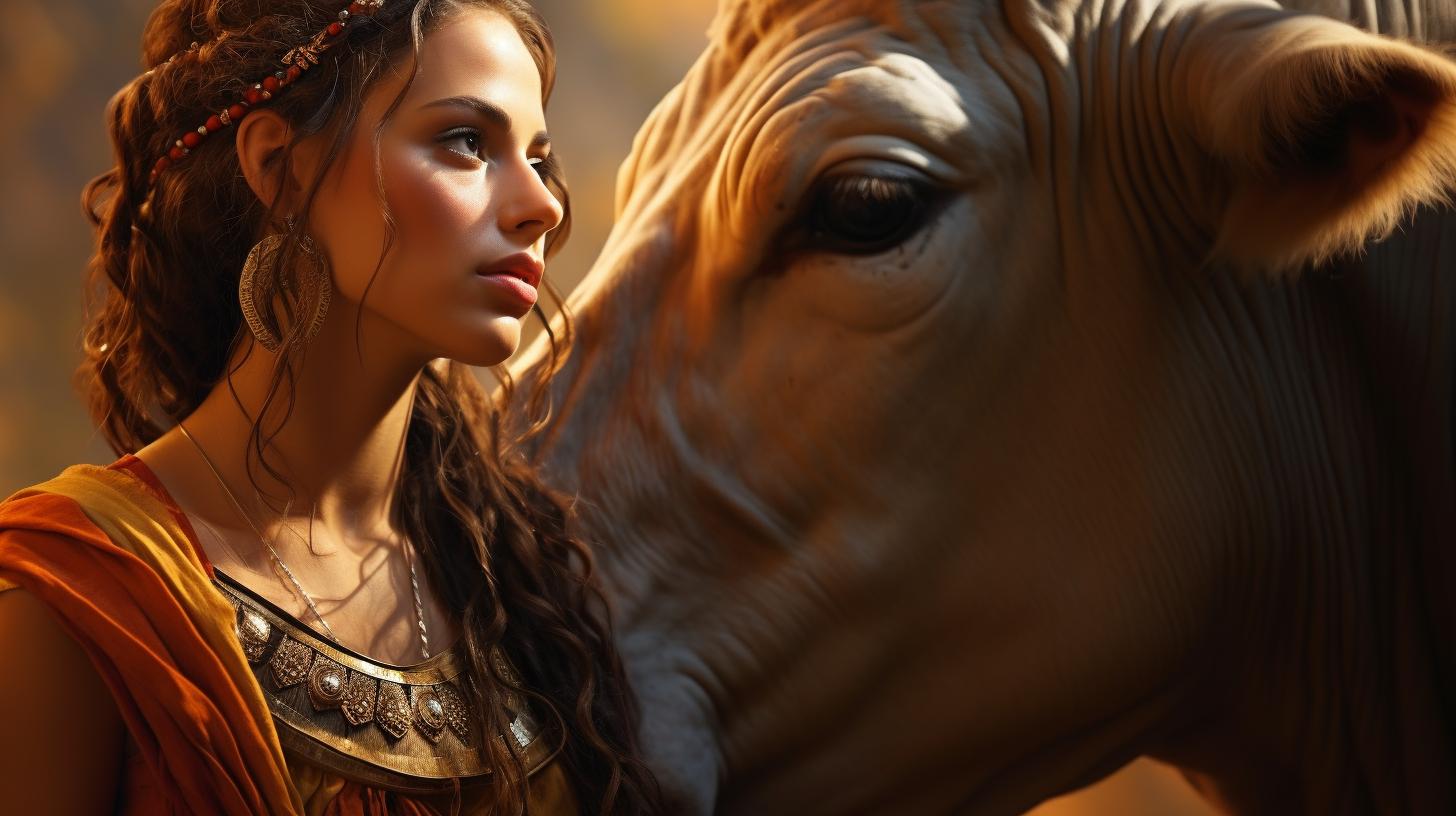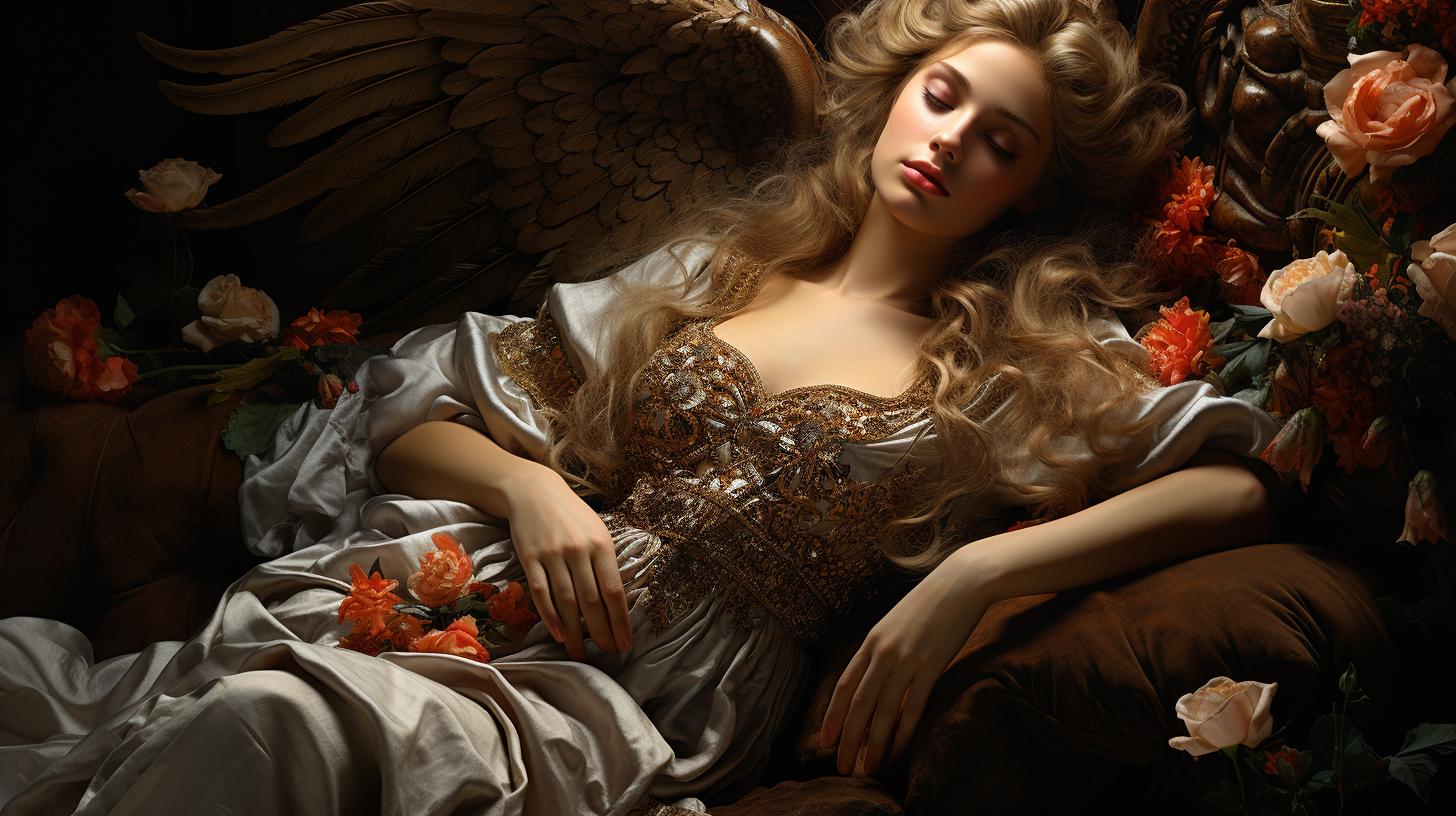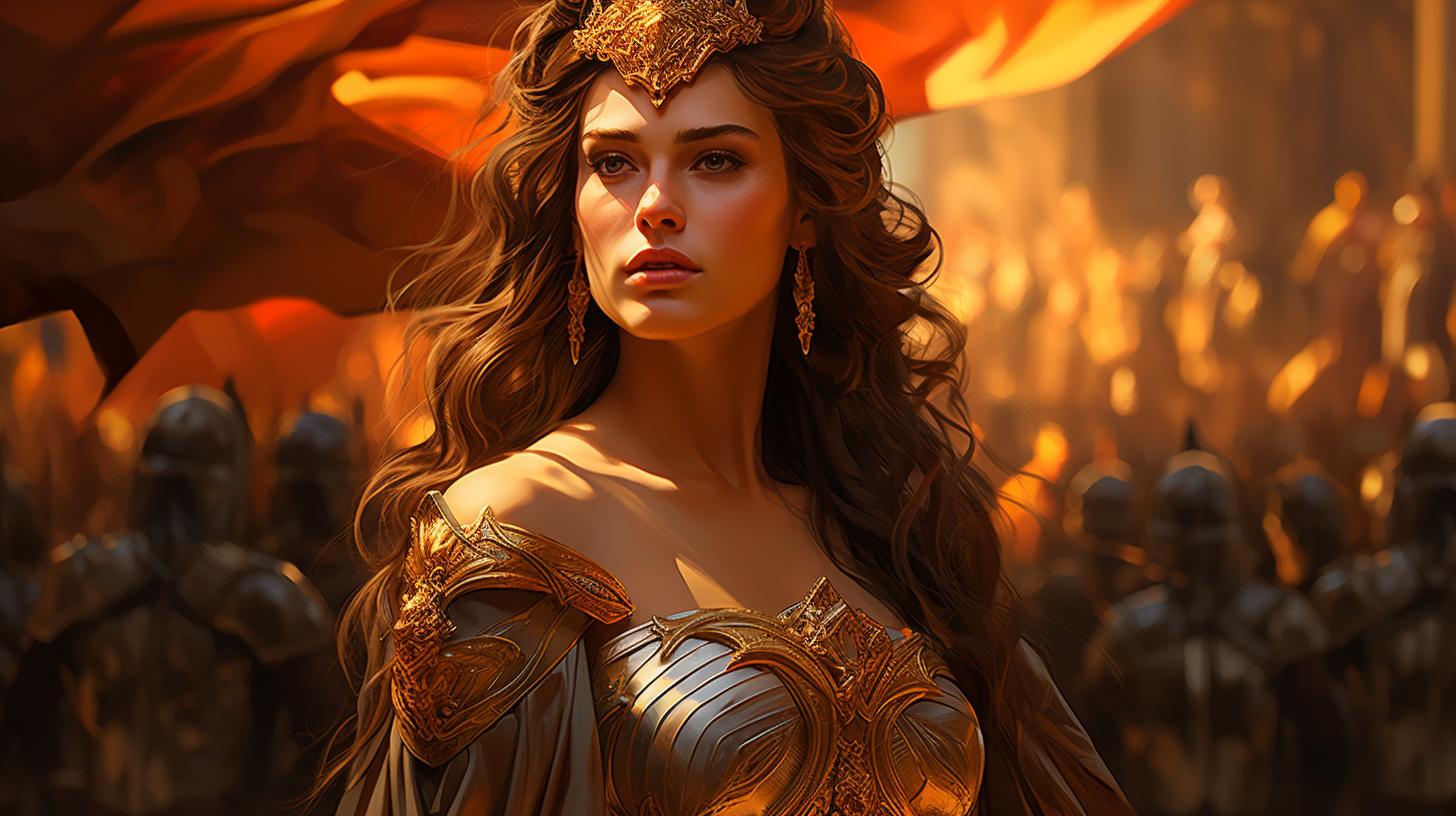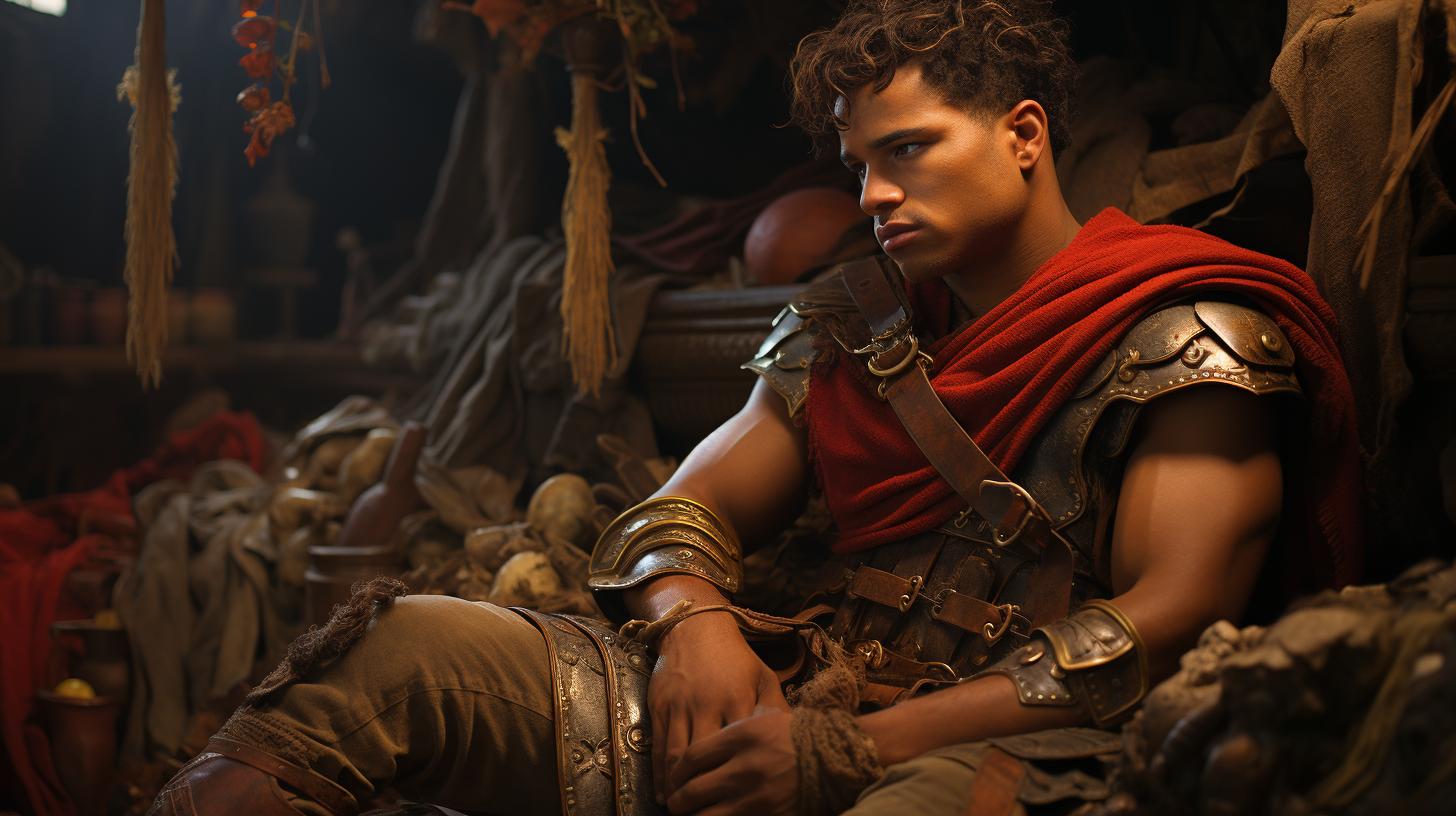Moros Greek Mythology: The God of Fate and Tragedy Explored
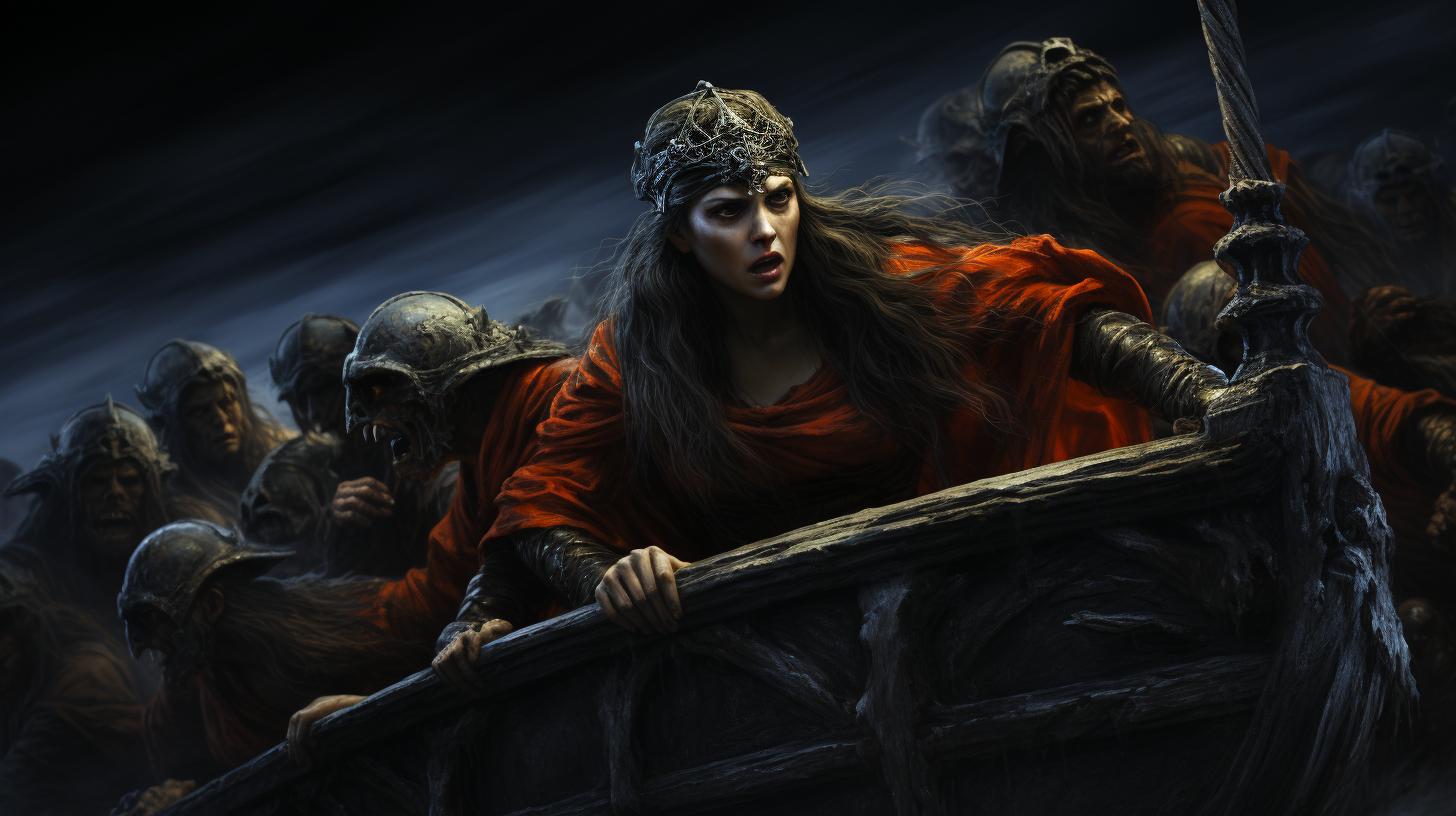
Moros, the god of fate and tragedy in Greek mythology, is a significant figure in the pantheon of gods. As the personification of destiny, Moros holds the power to determine the fates of individuals, even challenging the authority of Zeus himself.
Alongside his sisters, the Parcas, Moros plays a vital role in controlling the course of human lives. Additionally, his association with death, despair, and suffering solidifies his dark nature. This article explores Moros’s origins, his impact on Greek mythology, and his connection to other deities and characters in this ancient tradition.
Moros and Greek Mythology: Exploring the God of Fate and Tragedy
Moros and Greek Mythology: Exploring the God of Fate and Tragedy
Moros, the god of fate and tragedy in Greek mythology, holds significant power in shaping the destinies of mortals. This section examines the origins and genealogy of Moros, shedding light on his divine lineage as the child of Nyx and Erebus. Additionally, it delves into Moros’s role within Greek mythology, emphasizing his prominence as a key figure in controlling the fate of individuals.
Origins and Genealogy of Moros
Moros, the embodiment of destiny, sorrow, and despair, is born from the primordial deities Nyx and Erebus. As a sibling to Thanatos and Ker, who represent different aspects of death, Moros personifies the inevitable path towards one’s predestined demise.
Understanding Moros’s lineage provides insights into his significance and authority within the realm of Greek mythology.
Moros’s Role in Greek Mythology
Moros assumes a pivotal role within Greek mythology as part of the Parcas, also known as the Moiras, responsible for guiding and controlling the intricate tapestry of human destiny.
As the scribe of individuals’ fates, Moros inscribes their predetermined paths before handing them over to the Parcas for execution. This section explores the unique and formidable authority Moros possesses in influencing the lives of mortals.
The Power of Moros: Writing the Fates of Individuals
Moros wields unparalleled power in recording and determining the destinies of individuals. Even Zeus, the king of gods, is unable to challenge the fates and deaths ordained by Moros, as they represent irresistible forces.
The disruption that would ensue from anyone attempting to defy their destiny is an ominous warning of the chaos that Moros embodies. This section explores the extent of Moros’s power and its implications within Greek mythology.
The Parcas: Moros’s Leadership in Controlling Destiny
The Parcas, also known as the Moiras, play a crucial role in shaping human destinies in Greek mythology. This section explores their overview and the significance of their roles.
Overview of the Fates and their Roles
The Parcas consist of three sisters: Clotho, Lachesis, and Atropos.
Clotho spins the thread of life, Lachesis measures its length, and Atropos cuts it, determining the end of a person’s life. Together, they control the lifeline of every individual.
Moros’s Influence on the Parcas
As the god of fate and tragedy, Moros holds a leadership position among the Parcas.
He is responsible for writing the destinies of individuals, which are then handed over to the Parcas to be fulfilled. Moros’s influence ensures that their decrees are carried out in a way that leads to the destined outcome.
Zeus and the Inevitability of Moros’s Decrees
Even Zeus, the king of the gods, cannot question or alter the fate and death dictated by Moros. The decrees written by Moros represent unstoppable forces, and any attempt to defy or escape destiny would result in chaos and upheaval in the world.
Under the leadership of Moros, the Parcas act as the ultimate arbiters of human destinies, guided by the decisions and writings of Moros himself. It is through their combined power that the course of an individual’s life, and ultimately their death, is determined.
The Dark Nature of Moros: Despair and Suffering Personified
Within Greek mythology, Moros embodies the somber essence of despair and suffering. This section explores Moros’s profound connection to death, despair, and tragedy, shedding light on his role as a tormentor of souls beyond the mortal realm.
Moros’s Connection to Death, Despair, and Tragedy
Moros’s very existence is intertwined with the concepts of death, despair, and tragedy. As the god of fate, he is responsible for guiding individuals towards their destined demise. Stories depict him as an ominous figure lurking in the shadows, haunting the thoughts and dreams of mortals.
His influence extends beyond the physical act of dying, as he ensures that once deceased, individuals continue to suffer even in the afterlife. Victims of their predetermined fate cannot escape the clutches of Moros, trapped in eternal anguish and despair.
Moros’s Association with the Spirit of Depression
The deep connection between Moros and the spirit of depression is undeniable. His very nature reflects the gloom and melancholy that accompanies the realization of an inescapable fate. Moros personifies the darkness within the human psyche, embodying the weight of despair and hopelessness.
Legends tell of how people, even heroes, intentionally ignored Moros’s presence to avoid inviting misfortune into their lives. By turning a blind eye to the god of despair, they sought to protect themselves from the overwhelming sorrow that his presence symbolized.
Moros in Mythological Works and Stories
Throughout various mythological works and stories, the influence of Moros is palpable. In Aeschylus’ play “Suplicantes,” for instance, he is mentioned in the context of Olethros, the spirit of destruction seeking vengeance.
Even in the underworld, Olethros refuses to release his victims, emphasizing the relentless torment brought forth by Moros’s intertwined fates.
These narratives remind us of the omnipotent nature of Moros, capable of surpassing even Zeus in altering the course of destinies.
His presence reflects the inevitability of our mortality, reminding us that no one can escape the grip of fate.
In conclusion, Moros’s connection to death, despair, and tragedy solidifies his place as a powerful figure in Greek mythology.
Representing the spirit of depression, he embodies the darkness that accompanies the realization of a predetermined fate. Legends and stories depict his influence in various realms, emphasizing the inescapable grip he holds on mortal lives.
Other Deities and Characters in Greek Mythology
In addition to Moros, Greek mythology is filled with a vast pantheon of gods and fascinating characters. Let’s explore some key aspects related to these mythical figures:
The Pantheon of Greek Gods and their Relationships
The Greek gods, also known as the Olympians, hold immense power and play significant roles in the ancient tales.
Each god and goddess possesses unique attributes and dominions.
- Zeus: The king of the gods and ruler of the heavens, known for his thunderbolt.
- Hera: The wife of Zeus and the goddess of marriage and family.
- Poseidon: The god of the sea and earthquakes.
- Demeter: The goddess of fertility and agriculture.
- Hades: The ruler of the underworld and the god of the dead.
- Athena: The goddess of wisdom, warfare, and strategic battles.
- Apollo: The god of light, music, poetry, and healing.
- Artemis: The goddess of the hunt, wilderness, and childbirth.
- Aphrodite: The goddess of love, beauty, and desire.
- Hermes: The messenger of the gods and the god of travelers, thieves, and commerce.
Mythical Monsters, Heroes, and Tribes Mentioned
Greek mythology is replete with awe-inspiring monsters, mighty heroes, and legendary tribes that are integral to the stories:
- Medusa: A monstrous creature with snakes for hair whose gaze turned people to stone.
- Centaurs: Half-human, half-horse creatures known for their wild and unpredictable nature.
- Minotaur: A fearsome creature with the head of a bull and the body of a man, residing in the Labyrinth.
- Heracles (Hercules): The demigod renowned for his extraordinary strength and twelve labors.
- Perseus: The hero who slayed Medusa and rescued Andromeda.
- Trojans and Achaeans: Tribes embroiled in the legendary Trojan War, as recorded in Homer’s epic, the Iliad.
Mythological Concepts and Terminology Explained
Understanding Greek mythology involves grasping key concepts and terminologies that shape the tales:
- Oracle: A sacred site or a person through whom the gods communicate divine predictions.
- Nymphs: Nature spirits often associated with specific natural features like forests, rivers, or mountains.
- Furies: Avenging spirits tasked with punishing those who commit grave crimes.
- Hubris: Excessive pride or arrogance challenging the gods, often resulting in severe consequences.
- Elysium: The realm of paradise where the blessed reside after death.
By exploring the various deities, heroes, monsters, and tribes, and understanding the underlying concepts, one can gain a deeper appreciation for the intricate world of Greek mythology.
.

